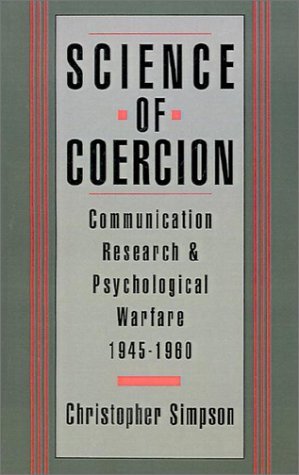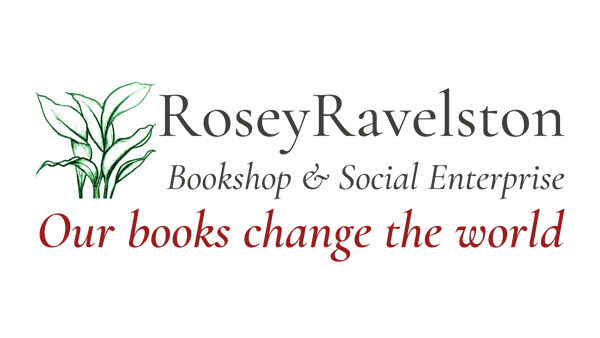Condition: Excellent
Christopher Simpson
Science of Coercion: Communication Research and Psychological Warfare, 1945-1960
Science of Coercion: Communication Research and Psychological Warfare, 1945-1960
Couldn't load pickup availability
Science of Coercion provides the first thorough examination of the role of the CIA, the Pentagon, and other U.S. security agencies in the evolution of modern communication research, a field in the social sciences which crystallized into a distinct discipline in the early 1950s. Government-funded psychological warfare programs underwrote the academic triumph of preconceptions about communication that persist today in communication studies, advertising research, and in counterinsurgency operations.
Christopher Simpson contends that it is unlikely that communication research could have emerged into its present form without regular transfusions of money from U.S military, intelligence, and propaganda agencies during the Cold War. These agencies saw mass communication as an instrument for persuading or dominating targeted groups in the United States and abroad; as a tool for improving military operations; and perhaps most fundamentally, as a means to extend the U.S. influence more widely than ever before at a relatively modest cost. Communication research, in turn, became for a time the preferred method for testing and developing such techniques. Science of Coercion uses long-classified documents to probe the contributions made by prominent mass communication researchers such as Wilbur Schramm, Ithiel de Sola Pool, and others, then details the impact of psychological warfare projects on widely held preconceptions about social science and the nature of communication itself.
A fascinating case study in the history of science and the sociology of knowledge, Science of Coercion offers valuable insights into the dynamics of ideology and the social psychology of communication.
Share
Published: 1996
Binding: Paperback
ISBN: 9780195102925
View full details


